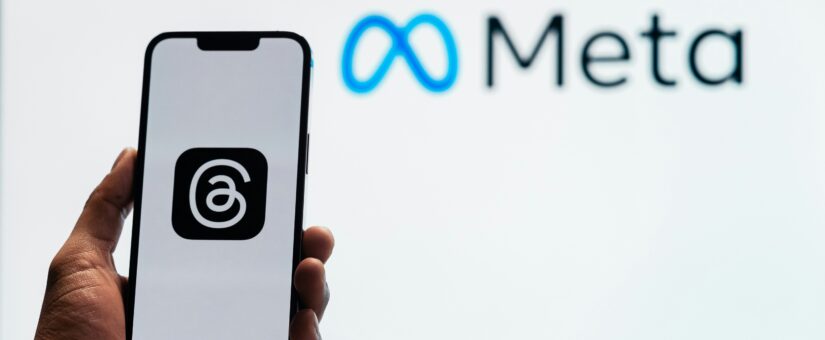
Here’s a comprehensive article on the impact Meta (formerly Facebook) has had on the music industry, exploring various aspects like social media influence, artist promotion, and changes in consumer behavior.
The Impact of Meta on the Music Industry
Meta, the parent company of Facebook, Instagram, and other platforms, has significantly transformed the music industry over the past decade. With billions of users worldwide, Meta’s platforms have become essential tools for artists, labels, and music marketers. This article explores the multifaceted impact Meta has had on the music industry, examining how it has reshaped artist promotion, audience engagement, revenue generation, and more.
1. Revolutionizing Artist Promotion
A. Direct Access to Fans
Meta has provided artists with unprecedented access to their fanbase. Through platforms like Facebook and Instagram, musicians can connect directly with fans, sharing updates, new releases, and behind-the-scenes content without intermediaries.
- Fan Engagement: Artists can interact with fans in real-time through comments, direct messages, and live streams, creating a more personal connection.
- Building Communities: Facebook Groups and Instagram fan pages allow artists to cultivate dedicated communities, enhancing fan loyalty.
B. Targeted Advertising
Meta’s advanced advertising tools enable artists and labels to create targeted campaigns that reach specific demographics.
- Audience Insights: Artists can analyze data to understand who their listeners are and tailor their marketing strategies accordingly.
- Cost-Effective Promotions: Smaller, independent artists can utilize affordable ad options to promote their music to potential fans, leveling the playing field against major labels.
2. The Rise of Video Content
A. Short-Form Video Platforms
With the introduction of Reels on Instagram and the emphasis on video content across Meta’s platforms, short-form videos have become a vital part of music promotion.
- Virality: Music clips can go viral, significantly increasing an artist’s exposure and streaming numbers.
- Creative Expression: Artists can showcase their music through dance challenges, lip-syncing, or creative storytelling, making it more relatable and engaging.
B. Live Streaming
The COVID-19 pandemic accelerated the adoption of live streaming on Meta platforms.
- Virtual Concerts: Artists held live-streamed performances, allowing fans to experience concerts from home.
- Revenue Opportunities: Many artists monetized these events through ticket sales, merchandise, and donations, creating new revenue streams.
3. Changing Consumer Behavior
A. Discovery of New Music
Meta has become a key platform for music discovery, influencing listeners’ choices and preferences.
- Algorithmic Recommendations: The algorithms on Instagram and Facebook curate content based on user interests, helping fans discover new artists and genres.
- User-Generated Content: Fans sharing their favorite songs and playlists contribute to organic discovery, with trending sounds on TikTok often spilling over to Meta platforms.
B. Influence of Trends and Challenges
Meta has been instrumental in shaping music trends through viral challenges and memes.
- Dance Challenges: Songs often gain popularity through dance challenges, which can lead to significant increases in streams and chart performance.
- Memes and Sound Bites: Snippets of songs used in memes or viral videos can boost an artist’s visibility and streaming numbers.
4. Revenue Generation and Monetization
A. Direct Sales and Merchandising
Meta has provided new avenues for artists to sell music and merchandise directly to fans.
- Shop Features: Facebook and Instagram Shops allow artists to set up storefronts, making it easier for fans to purchase albums and merch.
- Promotional Tools: Artists can run campaigns promoting limited edition merchandise, driving sales through urgency and exclusivity.
B. Streaming Integration
Meta’s integration with music streaming services has facilitated smoother access to music.
- Linking to Streaming Platforms: Artists can easily link their music on Spotify, Apple Music, and others through their profiles, directing fans to listen and stream.
- Enhanced Playlists: Curated playlists and recommendations on Meta platforms have become important for music discovery and driving streams.
5. Data and Analytics
A. Insights into Audience Engagement
Meta provides valuable data analytics that help artists and labels understand their audience better.
- Performance Metrics: Artists can track engagement metrics, such as views, likes, shares, and comments, to assess the effectiveness of their content.
- Strategic Decisions: This data allows artists to make informed decisions about touring, marketing, and content creation based on audience behavior and preferences.
B. Influencing Touring Decisions
Understanding where fans are located helps artists plan tours and live shows more effectively.
- Targeted Marketing: By analyzing data, artists can identify cities with a strong fan presence and focus their touring efforts there.
- Maximized Revenue: This strategic approach can lead to increased ticket sales and merchandise revenue.
6. The Role of Influencers
A. Collaborations with Influencers
Meta has fostered a culture where influencers play a significant role in promoting music.
- Influencer Partnerships: Artists often collaborate with influencers to reach wider audiences, leveraging their follower base for promotion.
- Authentic Promotion: Influencers can provide authentic endorsements, which resonate more with their audience compared to traditional advertising.
B. Building a Brand Identity
Influencers can help artists establish and enhance their brand identity.
- Lifestyle Promotion: Through collaborations, artists can align their music with specific lifestyles and values, making them more relatable to target audiences.
- Cross-Promotion: Artists gain exposure to influencer audiences, driving new fans to their music.
7. Challenges and Considerations
A. Saturation of Content
While Meta offers opportunities for exposure, the sheer volume of content can make it challenging for artists to stand out.
- Competition: Artists must constantly innovate and create unique content to capture attention amidst a sea of competition.
- Quality vs. Quantity: Balancing the need for regular content with maintaining quality can be difficult for emerging artists.
B. Algorithm Changes
Meta frequently updates its algorithms, affecting how content is distributed and seen by audiences.
- Unpredictability: Artists may find that their posts reach fewer people due to algorithm changes, impacting engagement.
- Adaptation: Artists need to stay informed about these changes and adapt their strategies accordingly.
8. Community Building
A. Fostering Loyalty
Meta platforms enable artists to build communities around their music.
- Exclusive Content: By offering exclusive content to followers, artists can create a sense of belonging and loyalty.
- Engagement Strategies: Regular interactions through polls, Q&A sessions, and live videos foster a deeper connection with fans.
B. Crowdsourcing Ideas
Meta platforms allow artists to gather feedback and ideas directly from fans.
- Interactive Features: Polls and question stickers on Instagram Stories enable artists to involve their audience in decision-making processes.
- Collaborative Projects: Fans can contribute ideas for music videos, album art, and more, enhancing their investment in the artist’s journey.
9. Global Reach and Diversity
A. Breaking Geographical Barriers
Meta’s global platform allows artists to reach audiences worldwide.
- International Markets: Artists can promote their music in regions they might not have accessed through traditional means.
- Cultural Exchange: Collaboration with international artists and exposure to diverse musical styles foster cross-cultural exchange.
B. Diverse Representation
Meta enables underrepresented artists to share their voices and connect with like-minded individuals.
- Spotlight on Diversity: Meta’s platforms highlight diverse genres and cultures, promoting a broader spectrum of music.
- Empowering Marginalized Voices: This representation helps empower artists from various backgrounds, creating a more inclusive music industry.
10. Future Trends
A. Continued Evolution of Video Content
As video continues to dominate social media, artists must adapt to creating engaging visual content.
- Augmented Reality (AR): The use of AR in music videos and promotions is likely to grow, offering innovative ways to engage audiences.
- Interactive Experiences: Future trends may include more interactive video content, where viewers can influence the narrative or experience.
B. Integration of AI and Technology
The incorporation of AI in music promotion and distribution is on the rise.
- Personalized Recommendations: AI can enhance user experience by providing personalized music recommendations based on listening habits.
- Content Creation: AI tools may assist artists in generating content, making the creative process more efficient.
Conclusion
Meta has profoundly influenced the music industry, offering artists innovative tools for promotion, engagement, and revenue generation. By providing direct access to fans, enhancing music discovery, and fostering community, Meta has reshaped how music is marketed and consumed. However, challenges such as content saturation and algorithm changes require artists to remain adaptable and strategic in their approaches. As Meta continues to evolve, its impact on the music industry will likely grow, presenting new opportunities and challenges for artists and music professionals alike.
- On 11/11/2024


